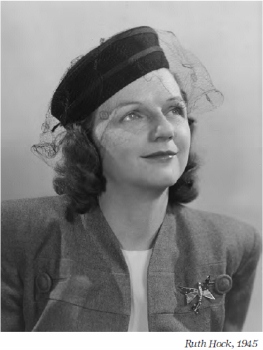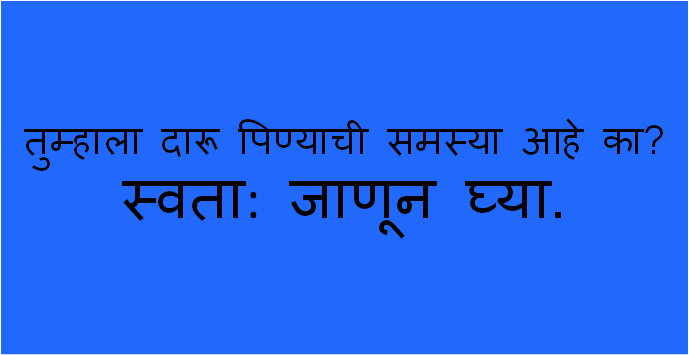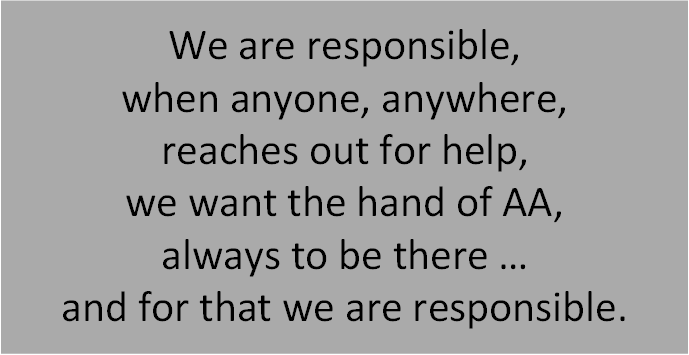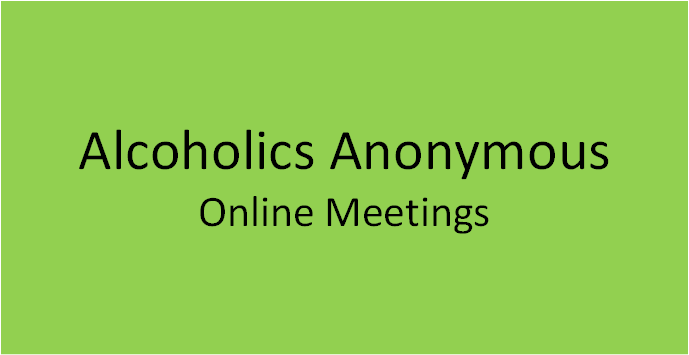A.A. co-founders Bill W. and Dr. Bob met in Akron, Ohio, on June 10, 1935. By 1937 Bill and the New York alcoholics had left the Oxford Group (forerunner of A.A.), largely out of a growing conviction that alcoholics needed to work with other alcoholics. That same year Bill joined in a business venture with Henry “Hank” P., an energetic redhead and former oil company executive who, with Bill’s help, was staying sober. The plan: to organize Northern New Jersey gasoline dealers into a cooperative buying organization. Located at 17 William Street, Newark, New Jersey, it had a name, Honor Dealers, and a secretary, Ruth Hock, at a salary of $25 a week.
Ruth, 24, a native of Newark, was divorced, with a young son to support. A nonalcoholic, she never dreamed that she would be instrumental in helping the fragile fellowship of A.A.—in which 40 “drunks,” more or less, were staying sober—to grow and flourish. Years later, in November 1955, as Bill was beginning to write the history of the Fellowship’s first 20 years—which would be published two years later as Alcoholics Anonymous Comes of Age—he asked Ruth to share her recollections of those early times.
 Ruth Hock Dear Bill: As I remember, you had been sober just a little over a year when I first met you at Honor Dealers. The job I applied for was as secretary to sort of a distributorship for a group of service stations. Naturally, I had no idea what a surprise fate had in store for me and what a change it would make in my personal life, in my relations to and my opinions of my fellow man.
Ruth Hock Dear Bill: As I remember, you had been sober just a little over a year when I first met you at Honor Dealers. The job I applied for was as secretary to sort of a distributorship for a group of service stations. Naturally, I had no idea what a surprise fate had in store for me and what a change it would make in my personal life, in my relations to and my opinions of my fellow man.
I was interviewed by Hank—my immediate impression of him was that he had a warm, vibrant personality—and started to work immediately that morning.… You arrived shortly thereafter, Bill, bringing with you an aura of quiet, warm friendliness, of slow, deliberate decisions—and, I thought at the time, not much interest really in the service station business. By the end of that first day, I was a very confused female, for, if I remember correctly, that afternoon you had a visitor in your office, and I think it was Paul K. [a prospect]. The connecting door was left wide open and instead of business phrases, what I heard was fragments of a discussion about drunken misery, a miserable wife, and what I thought was a very queer conclusion indeed—that being a drunk was a disease.
I remember distinctly feeling that you were all rather hardhearted because at some points there was roaring laughter about various drunken incidents. (You will remember with me, I know, that in those days and for several years to come, we talked about “drunks,” not “alcoholics,” and therefore I use those terms here.) Fortunately I liked both you and Hank—I am not too easily frightened—and you were paying $3 more per week than I had been getting, so I was willing to give it a try.
Soon Honor Dealers was getting short shrift from both Bill and Hank, who were more interested in helping drunks and publishing a book about the fledgling society.
R.H. The activity of Honor Dealers, as I remember, was never of paramount importance… only a means to an end: to help a bunch of nameless drunks. Having come from a thrifty German family, I know what I thought—that if you two would spend as much energy and thought and enthusiasm on
Honor Dealers as you did on drunks, you might get somewhere. Anyway, I soon stopped caring whether Honor Dealers was successful or not, and became more and more interested in each new face that came along with the alcoholic problem and cared very much whether they made the grade or not. All of you made me feel as though I were a very worthwhile person in my own right and very important to you, which in turn made me want to always give my best to all of you. To me that is part of the secret of the success of A.A.—the generous giving of oneself to the needs of the other.
Before long Bill and Hank were hard put to pay the rent and Ruth’s salary. Honor Dealers moved to a smaller, cheaper location; but, observed Ruth in her recollections, payday continued to be “an indefinite affair indeed.” In spring 1938 Bill began to work intensively on the basic text of the fellowship, Alcoholics Anonymous.
R.H. Bill, you began to dictate letters to Doc S. [Dr. Bob]. You never liked to dictate to a shorthand notebook— you always dictated directly as I typed.… Somewhere during those first months I met Doc, who gave everyone a feeling of great serenity—peace with himself and God—and an abounding wish to share what he had found with others.
During that first year, I don’t think I ever attended a meeting. But through your dictation, Bill, through all I heard at the office and through the letters I was answering myself in your behalf, I began to absorb an understanding of what it was all about and what you were trying to do, and I became aware that the possibilities of writing a book were being discussed. Many of you thought it was an absolute necessity because, even then, the original idea [of A.A.] was often distorted in the hundreds of word-of-mouth discussions. Its original basic simplicity was often completely confused beyond comprehension and, besides, it was becoming more and more impossible to fully expound the idea satisfactorily in letter after letter to various inquirers.
As I look at it today, the basic idea of each chapter of the book and the Twelve Steps is still essentially today what you scribbled on the original yellow sheets.…The first had to do with how much God was going to be included in the book itself and the Twelve Steps. The result [of often intense discussion] was the phrase “God as you understand Him,” which I don’t think ever had much of a negative reaction anywhere.… You got a green light everywhere you showed that typewritten copy, including from Dr. Bob and the Akron contingent, where a copy of everything was sent for O.K. or criticism.
The only other major change I remember during the actual writing of the book was that originally it was directly written to the prospective alcoholic, that is: “You were wrong”—“You must”—“You should”; and after a big hassle this was changed to read, “We were wrong”— “We must”—“We should,” etc.
The Akron and Ohio groups were constantly discussing what to name the new book. The Way Out was the favorite, until it was learned that a dozen other books bore the same title. Finally, Ruth recalled, it was settled: The book would be called Alcoholics Anonymous.
R.H. The financing of the book is quite difficult for me to remember.… Originally the work was done on Honor Dealers’ time. What salaries were paid came from Honor Dealers’ transactions, and the paper, the pencils, the office, the typewriter, the phone, etc. belonged to Honor Dealers. Let me make it clear that the members of Honor Dealers were never cheated in any way—they were always promptly served. It’s only that what might have been a worthwhile idea for a group of service stations just didn’t pan out.
Unfortunately, I am not very good at getting across the spirit of fun, the real enjoyment of life, the cheerful acceptance of temporary defeat, the will to keep trying, the eternal effort to keep everybody satisfied that made these years so very worthwhile and so soul-satisfying.… Even the altercations and disagreements, of which there were many, were carried out with a basic will to reach a compromise, at least. Therefore a compromise was always possible and always reached amicably.
The ability to laugh at yourselves and to accept the puncturing of your own self-importance is one of the basic steps in A.A., I believe—it makes every individual more likable and lovable whether alcoholic or not. What little I have been able to absorb has made life much simpler for me.
Just before Alcoholics Anonymous was published in April 1939 by the Cornwall Press, its president, Edward Blackwell, asked how many copies should be printed. The A.A.s, expecting an article about the society to appear simultaneously in the Reader’s Digest (which never panned out), were “still thinking of carloads,” Bill later reported. But though “doubtless impressed,” Mr. Blackwell suggested 5,000 copies for the first printing and agreed to accept a down payment of $500—all the A.A.s could afford. It was decided to make $3.50 the list price, which was high for 1939. In an effort to compensate, however, the thickest paper available was chosen for the original volume, which became so hefty it was dubbed the Big Book. Bill later recalled that “the idea was to convince the alcoholic he was getting his money’s worth,” but Ruth remembered differently: “The idea, as I understood it, was that everybody who read this book, to start, was going to be shaky and nervous, and they didn’t want fine print or fine pages.” (“Pass It On,” p. 205)
R.H. When the book was finally rolling off the press, the feeling was that our troubles were over, which turned out to be far from the case. It was agreed that the book needed to be advertised, and a date was finagled for [member] Morgan R. to appear anonymously on the popular radio program We the People. He did a good job with his three minutes while we all listened breathlessly. As I remember, his talk was slanted at doctors, and to back him up we had mailed out thousands of postal cards to a selected list of doctors…to get them to listen and tell them how to get a copy of the book. We had an assembly line all ready to pack and mail the books when the orders came rolling in. Then we waited. I don’t think more than four cards were returned at all, and the only one that made an impression on me was the first one, an order for six books, C.O.D. [that turned out to be bogus]. We simmered down and were as close to gloom as I ever remember we got.
Some six months later, in September 1939, an article in Liberty magazine titled “Alcoholics and God” elicited approximately 800 “urgent pleas for help,” Bill reported in A.A. Comes of Age (p. 178). “[Ruth] wrote fine personal letters to every one of them, enclosing a leaflet which described the A.A. book.”
R.H. Although the book was mentioned [in each letter], we tried to get across the fact that it was not necessary to purchase it. In each case, the individual was referred to the closest group or individual. Since at that time, I imagine, there were no more than 500 A.A. members, it was often difficult to get any closer to the individual than several hundred miles. However, we did the best we could and soon began to be able to count on several traveling salesmen among our A.A. members. Outstanding among these was [one] who often made side trips of several hundred miles to try to contact people who had written to our office for help. Some of the things that stand out most were letters from individuals who were too far distant to contact any A.A. group or member but who kept writing back to us and, with the help of the book, were able to reach sobriety by themselves, and even to start their own groups.
To keep us humble and laughing were developments like the Southern group. [A member] wrote us glowing reports about his group and its amazing recoveries.… One of our traveling members stopped in for a visit, and his letter to us was an eye-opener. It seems that this particular group was based on the theory that all alcoholic beverages were very bad for the alcoholic—except beer. The idea was carried out so thoroughly that beer was served at their A.A. meetings, along with copious readings of the A.A. book. Oh, well, the beer itself soon cured that misconception.
One of the biggest things you ever did for the solid growth of A.A., Bill, was to set up a policy of non-interference in the development of individual groups. You set up a policy of suggestion, not direction, with which I agreed all the way and which I always followed.
Always the best to you, Bill. Devotedly, RuthIn early 1942, Bill wrote in Alcoholics Anonymous Comes of Age (p. 195), “Ruth Hock left us to be married, carrying the affectionate wishes of thousands of members. The work of that sturdy little pioneer of the book Alcoholics Anonymous and A.A.’s first Headquarters set us an example that will never be forgotten.” In 1985, at the International Convention in Montreal celebrating 50 years of the Fellowship, which now numbered more than 1.5 million members worldwide, Ruth was presented with the 5 millionth copy of the Big Book. She died the following year at age 75.
As published in News and Notes from the General Service Office of A.A. ® Box 459 Vol. 53, No. 4 / August-September 2007 www.aa.org



